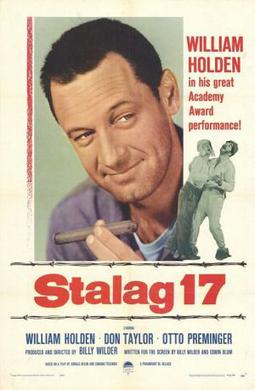Sunset Blvd., with the abbreviation, is the "official" title because it's the only way we see it in the credits of the film: as a shot of the street name stenciled on a curb. So from the beginning we are all in the gutter, and later we are looking at the stars -- or at least one fading star, Norma Desmond (Gloria Swanson). Accepting the role of Norma was a truly courageous act by Swanson: She must have known that it was the part of a lifetime, but that posterity would remember her as the campy has-been silent star, and not as the actress who had a long and distinguished career, playing both comedy and drama with equal skill, or as the spunky title character of
Sadie Thompson (Raoul Walsh, 1928), which earned her her first Oscar nomination. The role of Norma Desmond might have won her an Oscar if it hadn't been for another star whose career was beginning to fade: Bette Davis, who was nominated for
All About Eve (Joseph L. Mankiewicz). The conventional wisdom has it that Swanson and Davis split the votes, allowing Judy Holliday to win for
Born Yesterday (George Cukor). This was also a landmark film for William Holden, who had been an unremarkable leading man until his performance as Joe Gillis established his type: the somewhat cynical, morally compromised protagonist. It would earn him an Oscar three years later for another Wilder film,
Stalag 17 (1953), and would be his stock in trade through the rest of his career, in films like
Picnic (Joshua Logan, 1955),
The Bridge on the River Kwai (David Lean, 1957),
The Wild Bunch (Sam Peckinpah, 1969), and
Network (Sidney Lumet, 1976). Holden almost didn't get to play Gillis; Montgomery Clift was offered the role but backed out. One story has it that Clift thought the role, of a man out to get the money of a woman he doesn't love, was too much like one he had just played, in
The Heiress (William Wyler, 1949), while others have said that he backed out because the story of a man's affair with an older woman would remind people of his own earlier affair with the singer Libby Holman, 16 years his senior. There is in fact an unfortunate whiff of disapproval in Wilder's treatment of the age difference between Norma Desmond and Joe Gillis -- Norma is said to be 50, which was Swanson's age when the film was made, while Holden, who was 32, was made up to look even younger. Wilder, it must be observed, seemed to have no problems when the age difference was reversed, as in his 1954 film
Sabrina, in which a 54-year-old Humphrey Bogart romances a 25-year-old Audrey Hepburn, or the 1957
Love in the Afternoon, with 28-year-old Hepburn and 56-year-old Gary Cooper. None of this, however, seriously detracts from the fact that
Sunset Blvd. remains one of the great movies, with its its superb black-and-white cinematography by John F. Seitz. It won Oscars for the mordant screenplay by Wilder, Charles Brackett, and D.M. Marshman Jr., the art direction and set decoration of Hans Dreier, John Meehan, Sam Comer, and Ray Moyer, and the score by Franz Waxman. It's also one of the few films to receive nominations in all four acting categories: In addition to Swanson and Holden, Nancy Olson and Erich von Stroheim received supporting player nominations, but none of them won.



































